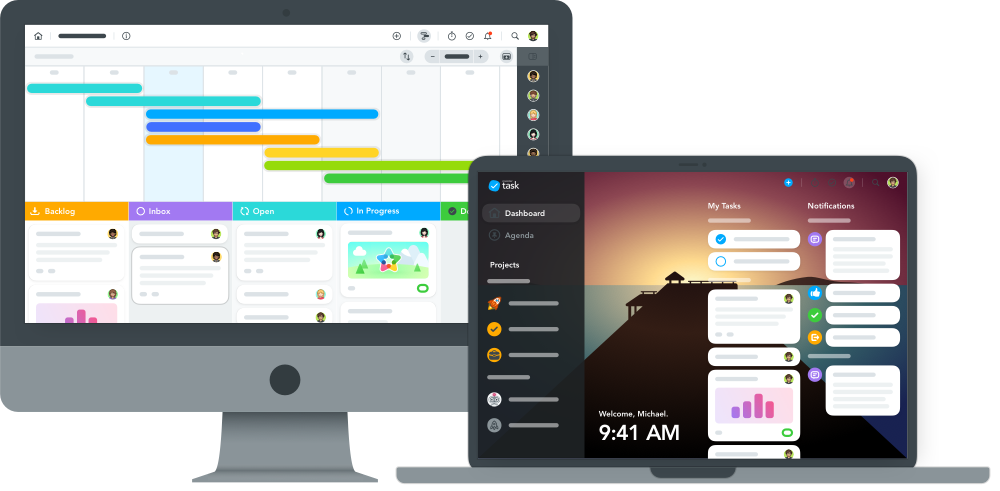It’s unfortunate but true: The further you progress in your career, the more meetings you go to. While some are productive, many are disorganized, inefficient, and distracting. It’s also hard to check off your other work tasks when you’re constantly going from meeting to meeting.

The solution is obvious: Reduce your meetings.
However, that’s easier said than done. Read on for five strategies that’ll help you have efficient meetings and cut out the inefficient ones.
1) Block Time for Important Tasks
I have a recurring event for “Writing” every day from 8 to 10 A.M. In effect, no one can book me for those two hours.
Blocking time on your calendar is a great way to reduce meetings and ensure you have time for your priorities. Maybe you prefer to answer emails after lunch, so you block off 1 to 2 P.M. for “Answering emails”—or you know from experience you can’t focus in the evening, so you reserve 5:30 to 6 P.M. for “Administrative tasks.”
Don’t want your coworkers to know why you’re unavailable? Google Calendar lets you change the visibility of individual events. To make yours private, follow these instructions. You can also simply name the event “Do not book” or “Busy.”
2) Propose a “No Meetings” Day
Many companies dedicate one day per week to pure work—in other words, no meetings allowed.
If you’ve got enough authority to start a regular “No Meetings” day, here are a couple suggestions:
- Be vigilant about enforcing the policy. When a few employees break the rule and have a covert meeting, the entire concept loses its power. Before you know it, everyone will be having meetings on “No Meetings” day.
- Consider making this a monthly, rather than weekly, occurrence. This cadence is more realistic.
- The executive team can’t meet either. You have to set the standard.
If you’re an individual contributor or the manager of a team, you can still propose a day for zero meetings. Explain to your supervisor why it’s a good idea to reduce meetings and how you plan on implementing this day. You might become your coworkers’ new favorite person.
3) Learn How to Decline
Professionals often assume they’re required to go to every meeting. However, the sooner you learn to graciously decline, the more productive you’ll ultimately be.
Of course, that doesn’t mean you should start turning down invitations left and right. Ask yourself, “Will I add value or learn something?” If the answer is no, tell the organizer you can’t attend.

Here are some sample templates:
If the meeting is too premature for you to join:
Hi [name of organizer],
Thanks for inviting me to the meeting for [purpose]. Based on the [agenda, focus], I don’t think [I am, my team is] ready to be involved yet. I’m excited to join the [discussion, planning] once [key event happens].
Best,
[Your name]
If you’re not the right person:
Hi [name of organizer],
Excited to see a meeting on the calendar for [purpose]. Looking at the [agenda, focus], I’m probably not the ideal representative for [your role or team]. [Coworker] would likely have more insights to contribute. Would you be open to having [coworker] come in my stead?
Thanks,
[Your name]
If you’re too senior:
Hi [name of organizer],
Looking forward to hearing about the results of this meeting. [Report] will be attending on my behalf and sharing [his, her] notes with me.
Thanks,
[Your name]
If you’re only relevant to one section of the meeting:
Hi [name of organizer],
Thanks for the opportunity to [share my progress on X, learn about Y, discuss Z]. I’ve got a lot on my plate at the moment, so I’m going to sit near the door and slip out after the meeting has moved on.
Best,
[Your name]
4) Ask for an Agenda
If you frequently receive requests to “pick your brain,” “learn about your path,” or “get your career advice,” you’ve probably been the victim of far too many wandering or unfocused conversations. Some people set up informational interviews without thinking about what they’ll ask when they get there.
It’s frustrating to agree to help someone only to end up wasting 30 minutes.
To avoid this, tell interview hopefuls you’re happy to meet—but ask for a meeting agenda beforehand.
Take a look at this sample email:
Hi [name],
I’m glad to hear you’re interested in learning about [profession, my career path, topic]. We can definitely sit down for a half hour. So we can maximize that time, please send along five to 10 questions or items you’d like to cover. (This will also give me a chance to think about those items in advance.)
Thanks,
[Your name]
You’ll filter out those who want to meet but don’t have a real purpose. Plus, the informational interviews you do have will be noticeably more structured and meaningful.
5) Propose an Alternative
People often default to meetings when they need to discuss something, exchange information, or ask a question. If there’s a reason to talk—but a full-fledged meeting isn’t necessary—reduce your meetings by offering an alternative.
For example, if your coworker sends you a meeting invitation to brainstorm ideas for an upcoming project, you might recommend creating a mind map in MindMeister instead. Adding your ideas independently will save you valuable time.
Here’s how you might phrase your suggestion:
Hi [coworker],
I’m excited to develop some great ways to [accomplish X, do Y, handle Z]. Rather than holding a meeting, what if we used a joint mind map to record our ideas? That way, we’ll have more time to think of ideas. We can also easily drag and drop the winning ones into a project.
Thanks,
[Your name]
If a colleague has a straightforward question, ask if you can answer it via email instead.
Manage Your Meetings with Mind Maps
Sign Up for MindMeisterTake a look at this sample message:
Hey [coworker],
I’m happy to answer your question about [topic]. Actually, it might be quicker and more convenient to tell you in an email—mind giving me [more context, background on X, your actual question] so I can shoot you a reply ASAP?
Best,
[Your name]
Occasionally, you’ll get requests for meetings you’re confident do not require more than five to 10 minutes. That’s a good indication the meeting shouldn’t take place. You’ll spend a lot of energy booking the conference room and pausing your other work for little value.
See if you can walk over to their desk and have a quick conversation instead.
Respond with something along the lines of:
Hi [colleague],
Just got your meeting invite for [purpose]. I think [I, we] can knock this out with a quick in-person chat—can I come by your desk at some point [today, tomorrow] to quickly discuss it?
Thanks,
[Your name]
Finally, if you can replace the meeting by sending along some material (whether that’s a PDF, blog post, document, or link to an Answer page), do so.
This response would do the job:
Hi [name],
Luckily, I have the answer you need right here. Let me know if this [piece of content] raises any further questions for you. If not, it seems like a meeting isn’t necessary. 🙂
Best,
[Your name]
To recap, here are the five high-impact strategies you can use to reduce the number of meetings you attend.
- Create time blocks, or chunks of your day during which no one can book you
- Suggest your team or company have a recurring “no meetings” day
- Don’t assume you have to go to a meeting just because you were invited—learn how to graciously decline
- Request an agenda to make sure you’re only attending productive meetings
- Suggest meeting alternatives to streamline the conversation or decision
These techniques won’t just free up time in your day, they’ll also let you redirect attention and energy to your priorities.
Have you tried any methods to reduce meetings? Share your tips in the comments!


